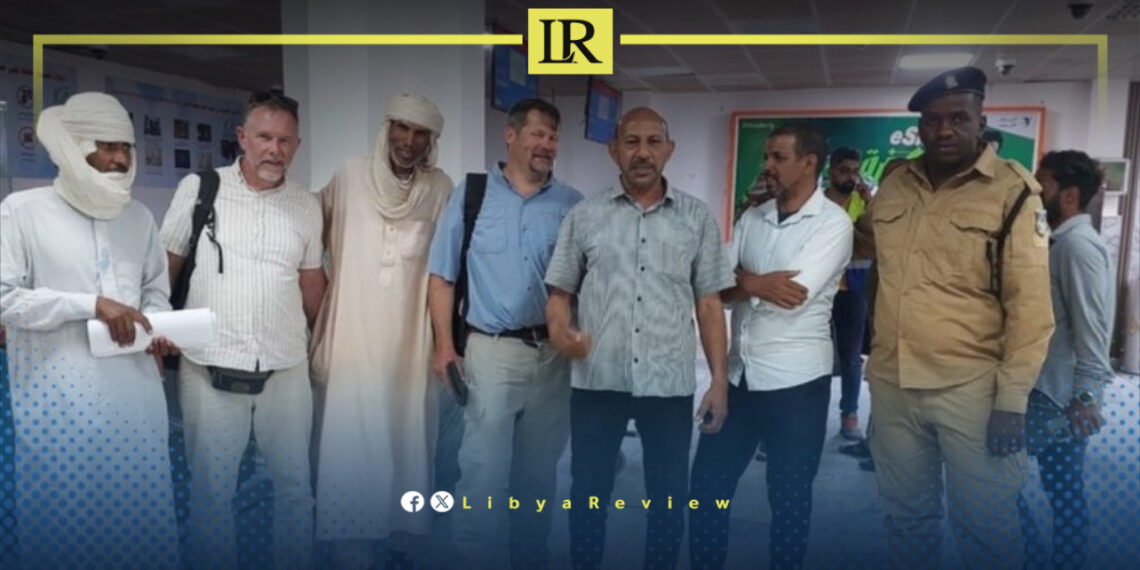A Canadian tourism and investment delegation has visited southern Libya, expressing admiration for the region’s improved security and rich tourist attractions, according to a statement by the Libyan Ministry of Tourism and Antiquities affiliated with the Libyan government.
The ministry said the visit comes as part of efforts to revitalize the tourism sector in southern Libya, taking advantage of the growing stability brought about by the Libyan National Army (LNA). The Director of the Tourism Office in Sebha welcomed the Canadian delegation, which included tourism company directors and potential investors.
During the visit, the delegation expressed strong satisfaction with the security improvements witnessed in the area, calling it a promising sign for the revival of international tourism. They also revealed plans to organize larger Canadian tourist groups to Libya next year.
The delegation toured several unique natural and historical sites, including Gaberoun Lake, the Murzuq Sand Dunes, the Akakus Mountains, Al-Awainat, Germa, Toywa, and the ancient city of Ghat. Members of the group were reportedly deeply impressed by the region’s natural beauty and diverse tourism potential.
Libya has been in chaos since a NATO-backed uprising toppled longtime leader Muammar Gaddafi in 2011. The county has for years been split between rival administrations.
Libya’s economy, heavily reliant on oil, has suffered due to the ongoing conflict. The instability has led to fluctuations in oil production and prices, impacting the global oil market and Libya’s economy.
The conflict has led to a significant humanitarian crisis in Libya, with thousands of people killed, and many more displaced. Migrants and refugees using Libya as a transit point to Europe have also faced dire conditions.
The planned elections for December 2021 were delayed due to disagreements over election laws and the eligibility of certain candidates. This delay has raised concerns about the feasibility of a peaceful political transition.
Despite the ceasefire, security remains a significant concern with sporadic fighting and the presence of mercenaries and foreign fighters. The unification of the military and the removal of foreign forces are crucial challenges.


